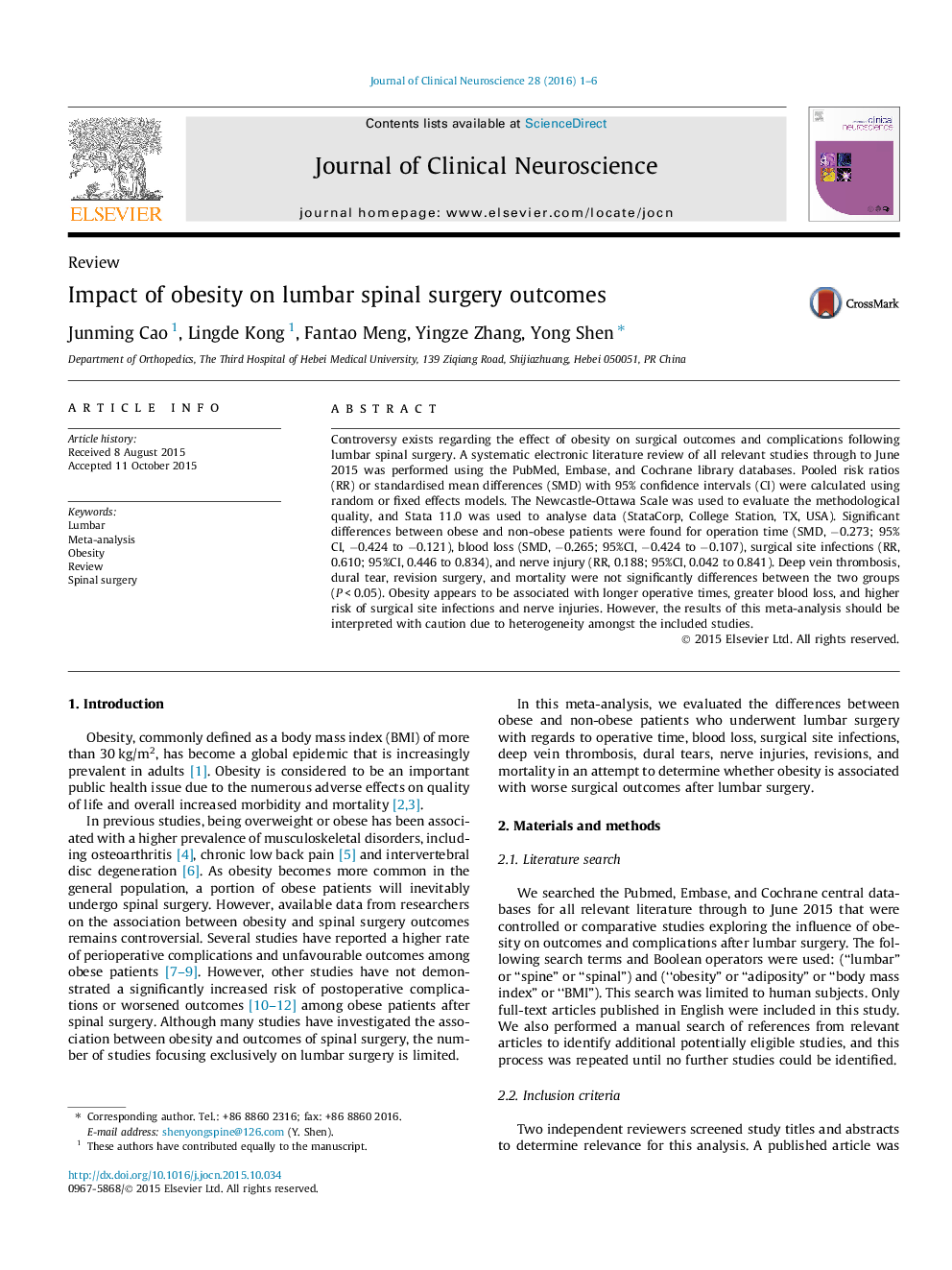| Article ID | Journal | Published Year | Pages | File Type |
|---|---|---|---|---|
| 3058337 | Journal of Clinical Neuroscience | 2016 | 6 Pages |
•We investigated whether obesity is associated with poor outcomes after lumbar surgery.•Operating time, blood loss, surgical site infection, and nerve injury were significantly increased in obese patients.•Deep vein thrombosis, dural tear, revision, and mortality were not significantly increased in obese patients.•Minimally invasive surgical techniques may be useful in obese patients for reducing blood loss.
Controversy exists regarding the effect of obesity on surgical outcomes and complications following lumbar spinal surgery. A systematic electronic literature review of all relevant studies through to June 2015 was performed using the PubMed, Embase, and Cochrane library databases. Pooled risk ratios (RR) or standardised mean differences (SMD) with 95% confidence intervals (CI) were calculated using random or fixed effects models. The Newcastle-Ottawa Scale was used to evaluate the methodological quality, and Stata 11.0 was used to analyse data (StataCorp, College Station, TX, USA). Significant differences between obese and non-obese patients were found for operation time (SMD, −0.273; 95%CI, −0.424 to −0.121), blood loss (SMD, −0.265; 95%CI, −0.424 to −0.107), surgical site infections (RR, 0.610; 95%CI, 0.446 to 0.834), and nerve injury (RR, 0.188; 95%CI, 0.042 to 0.841). Deep vein thrombosis, dural tear, revision surgery, and mortality were not significantly differences between the two groups (P < 0.05). Obesity appears to be associated with longer operative times, greater blood loss, and higher risk of surgical site infections and nerve injuries. However, the results of this meta-analysis should be interpreted with caution due to heterogeneity amongst the included studies.
